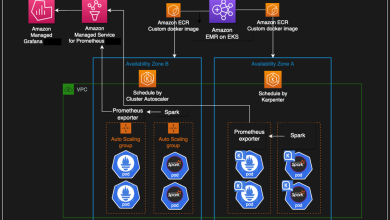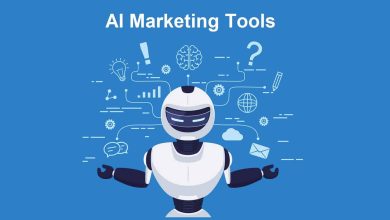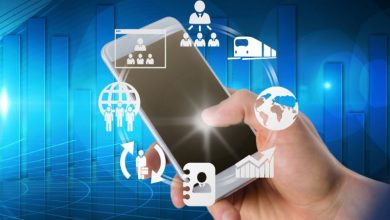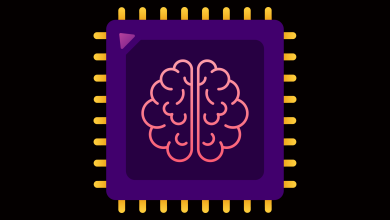
Artificial Intelligence (AI) has officially moved beyond being a Silicon Valley buzzword. In 2025, AI is not just about futuristic predictions—it’s the driving force behind how brands reach, engage, and convert customers. From content generation to predictive analytics, AI is rewriting the rulebook of digital marketing.
And here’s the interesting part: we’re not just seeing traditional digital agencies “adopting” AI tools. Entirely new business models are emerging—specialized AI marketing agencies in the USA that build strategies, pipelines, and even creative campaigns powered end-to-end by machine learning.
👉 If you’re looking for the most innovative agencies in this space, check out this curated directory of AI marketing boom agencies in the USA that are shaping the future.
Why AI Marketing Is Exploding Right Now
Let’s be honest—marketing has always been about one thing: understanding people at scale. For decades, brands relied on focus groups, surveys, and slow-moving data reports. But today? The scale is insane. Millions of micro-interactions happen across TikTok, Instagram, Google, email, and even voice assistants—every second. Customer journeys are no longer linear; they’re fragmented, unpredictable, and impossible for any human team to fully track in real time.
That’s where AI comes in. Artificial Intelligence doesn’t just keep up with the chaos—it thrives in it. By processing massive datasets in milliseconds and recognizing patterns invisible to the human eye, AI makes sense of complexity and turns it into actionable insights. This is the engine behind why AI marketing is exploding right now.
Here’s how AI is transforming the game:
- Real-Time Personalization : AI enables brands to deliver hyper-personalized recommendations, dynamic ad creatives, and even individualized email subject lines—all within milliseconds. Instead of segmenting audiences into generic “personas,” marketers can now speak directly to each person’s behavior in real time.
- Predictive Analytics : No more waiting for quarterly reports. AI can forecast demand shifts, churn risks, and even trending topics before they peak. Imagine knowing which campaign will resonate a week before your competitors even realize the trend exists.
- Automated Creative Production : Copywriting, design, and even video editing—tasks that once took weeks—are now being completed in minutes with AI-powered platforms. This means agencies can A/B test hundreds of creative variations instantly, finding winning campaigns without wasting months of production cycles.
- Conversational Commerce : AI chatbots and voice assistants are no longer basic FAQ bots. They’re handling complex, revenue-driving conversations: booking appointments, upselling products, or resolving issues with empathy-driven natural language. For many brands, chatbots have become the new frontline sales team.
- Cross-Channel Intelligence : AI stitches together fragmented customer data from ads, CRM systems, social interactions, and website visits into a single, coherent view. That “360-degree customer journey” marketers used to dream about? AI makes it real—and actionable.
- Agility at Scale : Instead of long planning cycles, campaigns can now evolve daily, even hourly. AI doesn’t just automate; it learns and adapts continuously, meaning your strategy isn’t static—it grows smarter with every impression, click, and conversion.
This is why CMOs across the U.S. aren’t just experimenting with AI anymore—they’re doubling down. Budgets are shifting away from traditional, human-heavy processes toward AI-first strategies. The logic is simple: if your competitors are running 100 personalized campaigns simultaneously while you’re stuck optimizing one, you’re already behind.
The Rise of AI-First Agencies
Here’s the big shift: traditional digital agencies treated AI like a bolt-on feature—a chatbot here, a predictive tool there—layered onto existing service models. But today, a new generation of AI-first agencies has emerged, and they’re built from the ground up with AI as the core DNA, not an afterthought.
These agencies don’t simply use AI tools—they design their entire business model around them. That means every workflow, every deliverable, and every client interaction is structured with automation, machine learning, and data intelligence at the center.
Here are the major types of AI-first agencies redefining the marketing landscape:
- AI-Powered Content Studios : Forget the days of content calendars built manually. These studios replace entire editorial teams with AI-driven workflows that generate SEO-friendly articles, social media posts, ad copies, and even video scripts in real time. The twist? It’s not just about volume—AI tools optimize content continuously based on audience engagement signals.
- Predictive Ad Agencies : Instead of waiting for quarterly performance reviews, predictive agencies let algorithms move media spend dynamically. If an ad starts underperforming at 3 p.m., budgets can shift automatically to another channel by 3:05 p.m. This level of agility was unimaginable in the old agency model, and it’s giving brands a serious competitive edge.
- AI Sales Enablement Agencies : These agencies bridge the gap between marketing and sales with conversational AI that integrates directly into CRMs. We’re not talking about simple lead qualification forms anymore—AI agents can nurture leads, answer objections, and even schedule meetings around the clock, acting like a fully automated sales team.
- Synthetic Media Agencies : Welcome to the world of hyper-personalized, AI-generated content. These agencies produce deepfake-style video ads, create virtual brand ambassadors, and localize content into multiple languages instantly. Imagine a single influencer campaign, recreated in 20 voices and accents for different markets—all without a physical shoot.
- Analytics-Driven AI Agencies (emerging fast) : Some agencies specialize solely in data intelligence. They don’t run ads or produce content—they provide AI-driven insights, forecasting, and optimization strategies that plug directly into a brand’s internal marketing team. Think of them as outsourced “AI strategy departments.”
What’s fascinating is that each of these represents a new business vertical that didn’t even exist five years ago. It’s not just evolution—it’s the birth of an entirely new ecosystem of agencies.
For brands, this shift means the old question—“Which digital agency should we hire?”—is transforming into “Which AI-first agency model fits our business?” And that’s a game-changing decision.
Case in Point: From SEO to AI SEO
Take SEO as an example. Old-school SEO was manual keyword research, backlink outreach, and long waiting cycles. Today, AI SEO agencies in the U.S. are:
- Using AI rank trackers that adapt faster than Google’s algorithm updates.
- Generating topic clusters automatically based on intent signals.
- Writing and optimizing thousands of pages in a fraction of the time.
- Even predicting SERP movements using regression models.
The result? Faster ranking cycles and more predictable ROI.
What Makes AI Agencies Different From Traditional Ones
Most agencies still focus on execution—ads, content, reporting. AI marketing agencies flip the script: they focus on data intelligence + automation.
Here are the 3 core differentiators:
- Speed – Campaign cycles shrink from weeks to hours.
- Scalability – One strategist can oversee campaigns that would normally require 10 people.
- Adaptiveness – Campaigns evolve in real time as AI learns from performance.
In other words, instead of hiring bigger teams, brands are hiring smarter agencies.
The New Jobs Emerging in AI Marketing
One of the biggest misconceptions about AI is that it’s here to replace humans. The reality? AI isn’t killing jobs—it’s reshaping them. Instead of eliminating marketers, it’s creating entirely new roles that didn’t exist in the traditional agency model. Walk into an AI-first agency in New York, San Francisco, or Austin today, and you’ll see job titles that sound futuristic but are already mission-critical:
- Prompt Engineer – Think of this as the creative director for AI. These specialists craft the instructions, tone, and frameworks that AI tools respond to, ensuring the output is not just technically correct but also emotionally engaging.
- AI Data Strategist – Every brand has oceans of messy customer data. This role translates raw information into structured AI workflows, bridging the gap between data science and marketing strategy.
- Synthetic Media Producer – From AI-generated influencers to deepfake-style product videos, these professionals create synthetic content that’s scalable, localized, and shockingly lifelike.
- Marketing Automation Architect – The behind-the-scenes engineer who builds custom stacks where multiple AI tools “talk” to each other, ensuring campaigns run smoothly without manual intervention.
- Ethical AI Consultant – With great power comes great responsibility. This role ensures campaigns respect privacy, minimize bias, and stay transparent—helping brands build trust while leveraging cutting-edge tech.
Together, these roles prove something powerful: the AI marketing boom is not just a technology shift, it’s the birth of a whole new business ecosystem. Just as social media once created influencers, community managers, and growth hackers, AI is spawning a new generation of specialists who will define the future of marketing.
Why the USA Is Leading the Charge
The United States is ground zero for the AI marketing revolution. Why?
- Tech ecosystem proximity: Most AI startups are headquartered in the U.S., giving agencies first access.
- Venture funding: Billions in VC money flowing into martech AI products.
- Brand appetite: American companies are more aggressive in experimenting with AI-driven campaigns.
The Trust Problem: Can AI Be Too Good?
Here’s a curveball: if AI can generate ads, write content, and even clone influencers… where’s the line?
Brands now face trust dilemmas:
- Will audiences trust synthetic brand ambassadors?
- Should disclosure of AI-generated content be mandatory?
- How do we avoid bias creeping into AI-driven campaigns?
The best agencies don’t just deliver results—they build ethical frameworks around AI use. That’s quickly becoming a competitive edge.
Where the Industry Is Heading in the Next 3 Years
Looking ahead, here’s where AI marketing is headed in the U.S.:
- Full-Funnel AI – From awareness ads to post-purchase retention, AI will manage entire journeys.
- Agent-Based Marketing – Brands deploying autonomous AI agents that negotiate ad buys, partnerships, and even PR opportunities.
- AI + Web3 Convergence – Imagine NFTs generated dynamically by AI, or tokenized loyalty programs powered by machine learning.
- Voice & Multimodal Dominance – Beyond text and visuals, AI will integrate voice, video, and even AR in marketing.
For brands, this isn’t optional—it’s the new baseline of competition.
Conclusion: The Future Belongs to AI-Native Marketers
Here’s the truth: AI isn’t replacing marketers—it’s replacing marketers who don’t know how to work with AI.
The agencies thriving in 2025 are the ones that integrate creativity with computation. They’re not guessing what audiences want—they’re predicting it, personalizing it, and delivering it instantly.
If you’re a brand, you have two choices:
- Stick with old-school digital marketing and watch competitors outpace you.
- Partner with an AI marketing agency and future-proof your strategy.
The choice seems obvious.
👉 Start exploring the top AI marketing agencies in the USA today and see how AI can transform your brand’s future.




